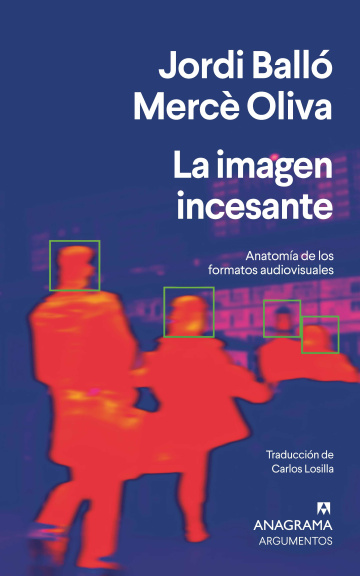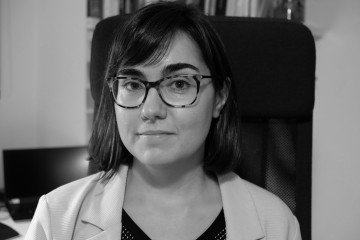| PAGES | 432 |
| SERIES | Argumentos |
| PUBLICATION | 03/04/2024 |

SERIES:Argumentos
An essay on the anatomy of audiovisual formats, on the set of rules that make each format unique, and, above all, on the ethical and narrative problems they raise.
What do television images tell us? What discourses are behind the different audiovisual entertainment formats? How has television evolved? Is it still a despicable, dumb box? What are its possibilities as an educational medium, and for the exploration of new audiovisual languages?
This book traverses through some of the omnipresent formats in television today and analyzes their backgrounds: talk shows and confessionals; debate shows and confrontations with the other; reality TV shows that isolate a group of people in an enclosed space or a remote island and subject them to extreme situations of coexistence as a representation of micro-societies; contests and the challenges of crucial decisions; true crime and the limits between truth and fictionalization; talent contests—like Operación Triunfo or Masterchef—and their relationship to labor realities…
It also addresses the television attempts carried out by artists like Warhol, the disruptive proposals like so-called Slow Television, the educational possibilities of the medium that where envisioned early on by Rossellini, literary programs and in-depth interviews, and experiments like Peter Watkins’ classic War Game or Jordi Evole’s false documentary Operación Palace.
What is television today? Where is it heading? What are its challenges and possibilities?
| PAGES | 432 |
| SERIES | Argumentos |
| PUBLICATION | 03/04/2024 |


Jordi Balló (Figueres, 1954) is an audiovisual communications professor and director of the Creative Documentary master’s program at the University of Pompeu Fabra. He was the director of exhibitions at CCCB. He is the author of the following books published by Anagrama, among others: Imágenes del silencio, La semilla inmortal, Yo ya he estado aquí, and El mundo, un escenario, the last three co-written with Xavier Pérez.


Mercè Oliva is a Serra Húnter Associate Professor of Media and Popular Culture in the Communications Department at the University of Pompeu Fabra. She is the author of the book Telerrealidad, disciplina e identidad: Los makeover shows en España.


